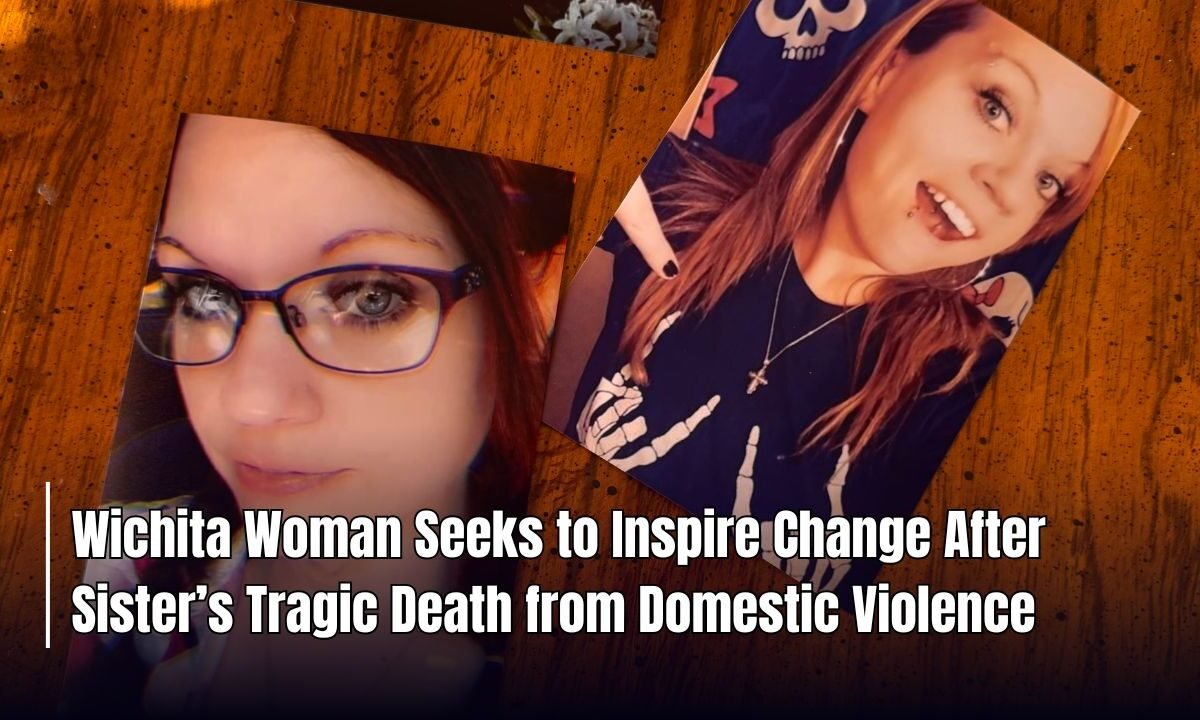Halloween is usually a season of excitement — decorations, costumes, and laughter. But for Shannon Reed, the holiday evokes pain and heartbreak. Six years ago, while at a movie theater in Wichita, Shannon saw she had missed several calls.
When she finally answered, her daughter shouted, “She’s dead! She’s dead!” Confused, Shannon asked, “Who’s dead? What do you mean?” Only then did she learn that her younger sister Brandi had passed away. Overwhelmed, Shannon screamed in the theater, refusing to believe what she was hearing.
Halloween 2019: A Night That Changed Everything
That Halloween, the family had anticipated the evening with joy — Brandi was even out trick-or-treating with her children and another sibling. Yet she went to bed early that night in preparation for a long shift as a Topeka corrections officer.
When she failed to show up for work the next day, concern grew. Responding family members and police smelt gas at her home. After repeated attempts to get in, officers eventually forced entry.
Inside, they found Brandi under a blanket, deceased. Her ex-boyfriend lay unconscious nearby. At first, authorities believed it was a tragic accident. The family traveled to Topeka, bought a burial outfit, and arrived at the funeral home, expecting a simple service.
Instead, they were given startling news: Brandi’s body had been so badly beaten that no bone was left unbroken, and she was extensively discolored.
The funeral director said an open casket was not possible. No one in law enforcement had warned the family. Furious and heartbroken, Shannon demanded answers, but none were readily offered.
Ultimately, medical records confirmed Brandi’s death was caused by blunt force trauma. Her ex-boyfriend, Jeremy Lardner, pleaded guilty in January 2022 to second-degree murder, aggravated robbery, and kidnapping. He was sentenced to over 48 years in prison.
Honoring Brandi — Amid Grief and Revelation
A Memorial Full of Love
When Brandi’s life was celebrated at her memorial, the turnout was overwhelming. The venue was standing-room only. Friends and strangers shared stories — of a warm, funny, loving mother. For Shannon, those stories were healing, affirming that her sister mattered deeply in others’ lives.
A Troubled Past and Strained Bonds
Brandi’s life was not always easy. The sisters grew up in modest circumstances, and Brandi suffered criticism and hardship from others. Over time, she entered relationships marked by abuse, which eventually drove a wedge between her and Shannon.
Two years before the tragedy, they argued over Shannon’s concern for Brandi’s safety. The rift escalated until they stopped speaking altogether. Shannon never got to tell her sister she loved her or try to help her.
Court documents show signs of abuse before the murder: Brandi reportedly arrived at work with a black eye a month before her death. For Shannon, grief is compounded by regret — her sister’s children will never witness mother-daughter milestones together.
Shannon said, “All the future memories were stolen from her… He stole it from her children, her possibilities, her dreams.”
Yet, she hopes that by sharing Brandi’s story, she can spark dialogue about healthy relationships and encourage those suffering to seek help.
Domestic Violence: A Community Emergency
The Scope of the Problem
Domestic violence affects millions. Research indicates that 1 in 4 women and 1 in 7 men experience physical partner violence. Kansas, too, has seen numerous cases of abuse that tragically escalated into homicide.
But abuse is rarely solely physical; it can also be emotional or sexual. According to Amanda Meyers, executive director of the Wichita Family Crisis Center, two pressing challenges stand out in confronting this crisis:
- Starting the conversation — Victims often feel trapped in silence until abuse turns lethal.
- Providing safe housing — Escaping abuse is harder when survivors have no affordable, secure place to go.
Meyers emphasized that situations can worsen rapidly. She urged, “If you suspect abuse or danger, don’t wait. Take action. Make that call. Have that conversation.”
She also noted a critical barrier: many survivors leaving shelters can’t find permanent, affordable homes. That bottleneck prevents shelters from helping new people in need.
Rising Demand and Limited Resources
The Wichita Family Crisis Center recently compared data from August 2024 to August 2025 and found a 160% increase in individuals staying at their shelter. They never refuse someone in need but struggle to keep up with demand.
Meyers once hoped the larger facility would stay underutilized. Instead, it’s operating at capacity. The center works tirelessly to connect survivors with resources — whether alternate shelters, hotels, or acceptable placements — all while fighting for systemic solutions to the housing crisis.
Brandi’s story is a heartbreak but also a powerful reminder: abuse often hides behind closed doors and can escalate to deadly violence. Her case underscores the urgency of raising awareness, supporting victims, and building community resources.
By sharing her life and the tragedy of her death, Shannon hopes others will speak up, seek help, and prevent future losses.




